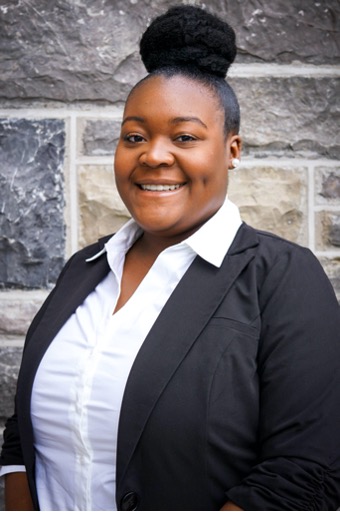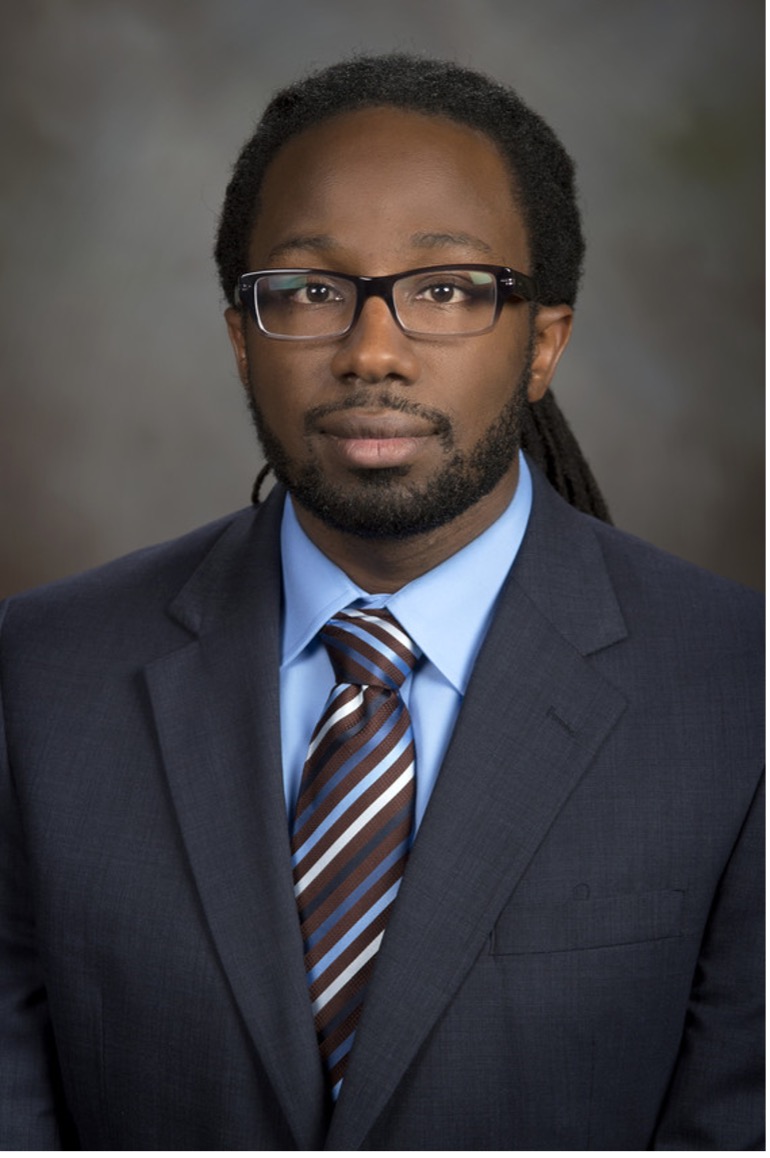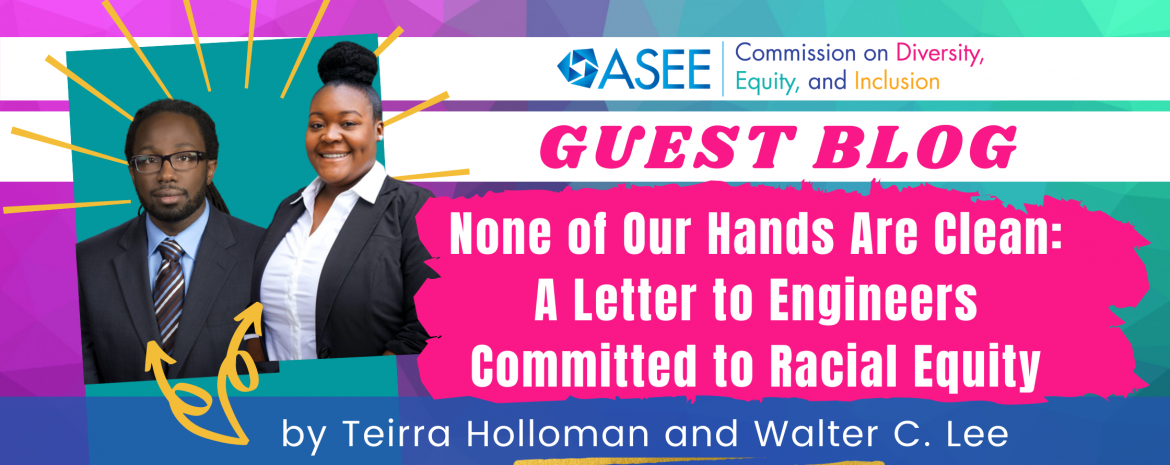None of Our Hands Are Clean: A Letter to Engineers Committed to Racial Equity
By Teirra Holloman and Walter C. Lee, Ph.D.
To Engineers Committed to Racial Equity:
We hope this message finds you well. Actually, we hope these words find you early. Early enough to encourage introspection and reflection. Early enough to prevent you from (or assist you with) enduring the inner turmoil we occasionally deal with. Early enough to make a difference and enable you to be more intentional in your decision making. We also hope these words find you impassioned. While we aren’t naive enough to assume that none of you have chosen this work for personal gain, we write these words in hopes that more noble reasons are also behind your joining our cause. If so, we write these words for you—an emerging version of ourselves, those considering racial equity work in engineering, or those already emerged in the field who could stand to take a pause.
For full transparency, we weren’t exactly sure how to best deliver this message or to whom it should be addressed. And our intended audience is, unfortunately, much narrower than the entire engineering community. The task presented to us was to draft a post that might help our audience (e.g., ASEE members) gain a better appreciation for diversity, engineering, and inclusion (DEI); direct them to additional resources; and/or provide them with a “call to action”. Will our words make you appreciate diversity more? Maybe. Will they direct you to additional resources? Perhaps. Will they inspire action? Who knows! But these words are what we have to offer. So, these words are what we give.
We come to you ahead of ASEE’s Year of Impact on Racial Equity. Not as representatives of ASEE, but as a PhD candidate and tenured professor in engineering education at Virginia Tech. (We are also Black, if you had yet to notice.) We are also representatives of the GUIDE Research Group. GUIDE’s mission is to advance our understanding of the role that diversity plays in engineering, actively and intentionally connecting research to practice. During our weekly meetings, we often grapple with some version of the following question: How do we avoid becoming cogs in the Diversity, Inc. machine? Referring to the billion-dollar business of “diversity initiatives” to which we all contribute: initiatives that put money in people’s pockets, particularly those who aren’t bearing the brunt of the emotional and physical labor required to fight against oppressive and discriminatory practices; initiatives that make institutions look far more inclusive than they are, hiding what lies beneath the surface and shielding them from potential lawsuits; and initiatives that—most importantly—many Black and brown students rely on in hopes of experiencing any semblance of a positive and supportive environment in engineering.
“From the rise in online diversity courses, professional organizations, magazines, training sessions, national conferences, and job postings, to the high-profile hiring of corporate czars and establishments of degree programs at prestigious schools, the lucrative industry is thriving, even if diversity is not.”
– Pamela Newkirk (pg. 195)
These initiatives in many ways present a catch-22, where we’re damned if we do and damned if we don’t. Leaving us with a contradictory reality that occasionally results in us wondering if our efforts are misplaced. We write these words under the assumption that we are not alone in these deliberations: we weren’t the first engineers to focus our work on racial equity, nor will we be the last. This constant tension is something folks don’t often tell you when they talk about what it means to “promote racial equity” or broaden participation in engineering.
This letter is our attempt to tell you what we wish someone told us sooner. So, while we don’t have the answers, what we do have are questions:
What are your goals?
As you embark upon this journey, it is important to know what type of impact you want to have. If you’re anything like us, answering this question will prove challenging. So here are some questions to help you get started: “What would it look like to make transformative contributions to racial equity in engineering? How will I reconcile wanting to see more Black and brown people in these engineering spaces with knowing that these environments are often toxic and harmful? How will I know which environments are worth saving from themselves? What does it look like to transform those spaces to not only be ‘inclusive’ but to also be spaces that Black and brown people want to exist in, as their whole selves?”. Regardless of your answers, this mission will seem more impossible as you learn about how systemic racism (and all the other isms) and power are intricately set up throughout and beyond the higher education system. We don’t say this to discourage you, but it is what it is *shrugs*.
What work will you do?
There will be no shortage of opportunities to get involved in Diversity, Inc. The challenge is figuring out where and how your time is best spent. Here are some questions to help you decide. “What types of roles won’t be performative and allow me to make an actual impact? How will I measure progress? Should I be getting paid for this? How will my work be valued? Who is benefiting from my contributions? Am I equipped to constantly start at ground zero with white folks, men folks, cis folks, etc.? Am I prepared to understand that those in power may feel as though this work is insignificant or not ‘real engineering’?” Once you’ve answered these questions, some initiatives will clearly be the wrong choice for you. You’ll go and vent to your friends, family, or maybe your advisor or supervisor about them. However, based on our experience, you will, more often than not, find yourself tempted or called to find a reason to contribute to these initiatives in some way. Maybe because you think the work won’t be done correctly or fail if you are not involved, even if you aren’t paid? Maybe because you are passionate about this beyond the emotional labor it takes? Maybe because you’re a “good person” and can’t say no? Maybe because you think this time will be different? Maybe because it’ll look good on your resume or CV? Or maybe you’ll think back to your original reasons for becoming an engineer (i.e., solving human problems and making the world a better place), aiming to live up to this aspiration even if the other engineers around you don’t always seem to be doing so? Again, we don’t say this to discourage you, but…
Who or what will you become?
Most people underestimate the cost (e.g., emotional, psychological, financial) of focusing on racial equity. If you’re serious about making an impact, you’ll eventually be forced to submerge yourself in many of the ugly truths about the United States and its higher education system. Though you’d likely sleep better at night if you only focused on unconscious biases, microaggressions, and opportunity gaps, the root causes of the issues you will likely want to solve are much further below the surface.
“At times it is easier to stay in my lab and do water chemistry and hope for my community impact to trickle down, than to be emotionally attached to the stories of community members and their fears about their water, knowing that the likelihood of me being able to improve their water is limited as the results are sometimes not ‘bad enough’ (i.e., health violations) to enact change.”
– Jeannie Purchase (Civil Engineering, PhD Candidate)
And, if you belong to any of the communities that you’re fighting on behalf of, these issues will also be extremely personal. You may start to see your family in the faces of the communities, students, and people you’re trying to help, and start to wonder who the cannons of your discipline actually apply to. So, we offer the following question: “After I ‘play the game,’ who will I have become?” We only offer one question because it is a dynamic question that we recommend you revisit periodically. Check-in with yourself often, as it’s advisable to occasionally clean your hands.
Now what?
Occasionally, divesting from work or institutions that perpetuate, reinforce, or legitimize that which we are up against will be required. Doing so might entail leaving a committee, turning down a speaking engagement, or leaving engineering all together. It also might entail working as a consultant or starting your own organizations. If recent years have taught us nothing else, it’s that none of our hands are clean. Choices will have to be made, and being neutral is not an option as it relates to racial equity in engineering (or the lack thereof).
In a normal letter, this would be where we leave you with a message of hope. But this is not a normal letter. So, in the event that you find yourself becoming someone you don’t want to be, leave. Or stay? The choice is ultimately yours.
Sincerely,
Teirra K. Holloman & Walter C. Lee
Our group offers the following reading suggestions:
- Ahmed, S. (2006). The nonperformativity of antiracism. Meridians, 7(1), 104-126.
- Baber, L. D. (2015). Considering the interest-convergence dilemma in STEM education. The Review of Higher Education, 38(2), 251-270.
- Carruthers, C. (2018). Unapologetic: A Black, queer, and feminist mandate for radical movements. Beacon Press.
- McGee, E. O. (2021). Black, brown, bruised: How racialized STEM education stifles innovation. Harvard Education Press.
- Newkirk, P. (2019). Diversity, Inc.: The failed promise of a billion-dollar business. Hachette UK.
- Shehab, R., Murphy, T. J., & Foor, C. E. (2012). ” do they Even have that Anymore”: the Impact of Redesigning a Minority Engineering Program. Journal of Women and Minorities in Science and Engineering, 18(3).

Teirra Holloman , Ph.D. Candidate, Graduate Research And Teaching Assistant at Virginia Tech Engineering Education
About the Authors
Teirra Holloman
Teirra Holloman is a doctoral candidate in engineering education at Virginia Tech, where she serves as a graduate research and teaching assistant. Teirra received her M.Eng. in Industrial and Systems Engineering at Virginia Tech with a focus in Management Systems and her B.S. in Industrial Engineering from Clemson University. Her research interests include organizational resilience; organizational change; diversity, equity, and inclusion issues in engineering and global education programs.
Connect with our guest blogger: LinkedIn, Twitter
Walter C. Lee , Ph.D.

Associate Professor, Department of Engineering Education, Director for Research in the Center for the Enhancement of Engineering Diversity (CEED), Virginia Tech.
Walter C. Lee is an Associate Professor in the Department of Engineering Education and Director for Research in the Center for the Enhancement of Engineering Diversity (CEED), both at Virginia Tech. He holds a B.S. in Industrial Engineering from Clemson University, an M.S in Industrial & Systems Engineering from Virginia Tech, and a Ph.D. in Engineering Education from Virginia Tech. His career vision is to be a driving force in the national effort to diversify engineering and ensure that institutions provide students with the necessary support to succeed regardless of their background.
Do you want to become a guest blogger?
CDEI Guest Blog highlight future events, describe best practices, or share calls to action by CDEI members. We invite you to propose posts that share brief research highlights, reports of impactful initiatives, critical thought pieces, and resources you find useful. We especially encourage emerging scholars to share their work. If you are interested in sharing a blog or resource post, you may submit your proposal here. All posts are screened and edited.

